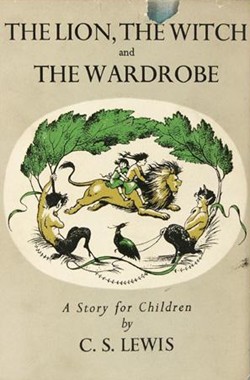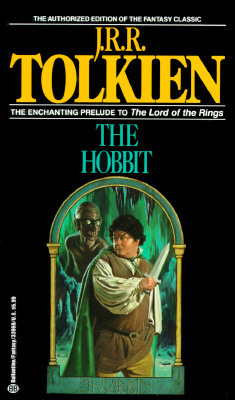Progress- Book #14 of 100
I’ll start by saying that I was
really looking forward to reading this novel. I remember watching the
Masterpiece Theater adaptation sometime in high school and really liking the
movie. When I saw it was on the list this was one of the first books I wanted
to read. It turned out being the 14th
book only because we couldn’t find it at any of the library book sales. We got
lucky finding the book at a random used book store in Cambria, CA. This was a
tiny little store with every bookshelf covered with books and tall piles of
books in front of every shelf. We were pretty lucky we found it and escaped the
store without being buried alive in a tidal wave of books.
I didn’t remember much of the story,
just the ending and from that knew it was a tragedy. Saying it’s a tragedy is
putting it lightly. The main character goes through so much, not by choice, but
by circumstances she is thrown in. Despite everything she has high moral
standards and keeps this throughout the book. Instead of getting angry or
feeling sorry for herself, she takes on the problems of everyone else and never
complains. There is one time when she finally stands up for herself and writes
a letter to her husband- but that is it- the rest of the time she just deals
with her life by working hard. That is one of the biggest problems I had with
the book, I like happy endings and when people are rewarded for their hard work
and attitudes. She does get one week of happiness right before she loses
everything, but for me that wasn’t enough. She was too good of a person to have
so many bad things happen too. As a reader you sympathize with her so much and
want her to succeed and be happy. Thomas Hardy does this really well, with his
writing style you get to care for Tess and wish the best for her.
The opening of the novel shows her
at a may dance, happy and content in life where she gets a glimpse of her
future husband. On the same day her father learns their ancestors were
prominent Englishmen and he decides they are better than their peers. From that
day on, her life quickly turns towards hardship and tragedy. Her father gets
drunk to celebrate his newly discovered lineage and it’s up to Tess to take
their goods to the market early the next morning to get their money needed for
survival. They are poor farmers and cannot afford to lose the last trip to the
market for the season. While traveling on the dark road with her younger
brother, Tess falls asleep after a few hours and subsequently the family horse
gets into an accident and dies. This is the first event in a series of events
that lead to a very harsh and sad life for Tess. She feels terrible about the
animal. Being the oldest of many siblings her mother urges her to visit their
newly found relations to request help and or employment. Tess is a Durbefield
and cares nothing of her D’Urberville relations, but has to go since the family
really has no other options. What they don’t realize is the D’Urberville aren’t
really her relations, they are people that bought the family name once they had
enough money to buy the title. Arriving at the home she meets Alec D’Urbeville
and she immediately knows he is bad. Alec is attracted to Tess and she goes to
work for them and becomes a victim. The title of this section explains it all
“Maiden No More.”
After Alec’s encounter Tess returns
home and gives birth to a baby boy and begins to work in the fields. The baby
dies and she decides to leave home and go to work on a dairy farm for a fresh
start. Here she meets Angel Clare and they fall in love. He begs Tess to marry
him, but she refuses because of her past. Angel father is a minister and Tess
knows she wouldn’t be accepted. Angel pursues and pursues until they are
finally married. On their wedding night Angel confesses to another love affair,
and Tess decides to tell Angel everything expecting to be forgiven. Angel
cannot believe it and punishes Tess by leaving her back with her family while
he leaves to think things over and pursue a farm in South America. Back with
her family Tess fakes her abandonment and leaves to go a work on another farm
hoping Angel will send for her. She is too proud to ask for money from him
family and too proud to let her own family know her situation. Instead of
telling her mother she has nothing she sends them all of her money to repair
the home.
As the time passes Alec and Tess
meet up again and then Alec decides he must have Tess. He pursues her until and
she refuses- still hoping Angel will come for her. Tess never gives up hope. In
the end he does come for her and realizes how wrong he treated her, but it is
too late.
Thomas Hardy teaches so many lessons
about culture and society in this story and it’s Tess that suffers through all
his lessons. She doesn’t want or care about a title, but her parents do. Their
greed and false airs costs them a horse-which leads to sacrificing their
daughter to Alec. Angel thinks he is forward with his thinking and decides not
to become a clergyman like his father and brothers. He confesses to Tess of his
own affair, but cannot forgive her for being raped. It’s a double standard, his
first real test in life and he fails. Thomas Hardy also goes into religion and
field work, but that’s too much for me to discuss right now. I’ll just say he
was very critical of both!
I enjoyed this novel even though the
story was depressing and sad it is a good book. It went deeper that I wanted,
but I think most of the books on this list will be deep thought provoking
books, that is how they become one of the top 100 greatest novels. I’ll give
this a 94%


